What Is Public Indecency in Colorado? A Complete Legal Breakdown
You might think Colorado's public indecency laws are pretty straightforward - don't do inappropriate things where people can see you, right? Well, like most things involving the law, reality has other plans. What seems obvious on paper becomes surprisingly nuanced when real people encounter real situations in the real world.
Colorado's legal system has spent decades wrestling with questions that sound simple but aren't: What exactly counts as "public"? How do you define "indecent"? What happens when someone's idea of harmless fun crashes headfirst into someone else's sense of propriety? The answers matter more than you might think, whether you're a lifelong Coloradan or just visiting our beautiful state.
Why These Laws Matter to You
Colorado residents and visitors face unique situations that don't exist elsewhere. Our state's culture blends urban sophistication with outdoor adventure, progressive attitudes with traditional values, and local autonomy with state oversight. This creates a legal landscape that's distinctly Colorado - and distinctly complicated.
Here's what makes Colorado different:
Outdoor Recreation Culture: Colorado's hiking trails, hot springs, and camping areas create situations you won't find in more urban states
Home Rule Cities: Places like Boulder, Denver, and Aspen can write their own rules, meaning what's legal in one city might not be in another
Tourist Destinations: Visitors often misunderstand local norms, leading to unintentional legal problems
Festival and Event Scene: Colorado's music festivals, art shows, and cultural events operate under different standards than everyday life
What You'll Learn About Colorado's Legal Approach
Colorado takes a measured approach to public indecency that reflects both individual rights and community standards. The state's laws recognize that context matters - a lot. What might be perfectly acceptable at certain events or locations could land you in legal trouble elsewhere.
Understanding Colorado's system means grasping these key concepts:
Legal Definitions: How Colorado statutes actually define terms like "public place" and "lewd conduct"
Enforcement Variations: Why the same behavior might result in different outcomes depending on where it occurs
Defense Options: What legal protections exist and when they apply
Real Consequences: The actual penalties people face, not just what's written in law books
Practical Prevention: How to avoid problems while still enjoying everything Colorado offers
The Bottom Line: Colorado's public indecency laws are more complex than they appear, but understanding them helps you make informed decisions about your behavior and protect your rights if legal issues arise.
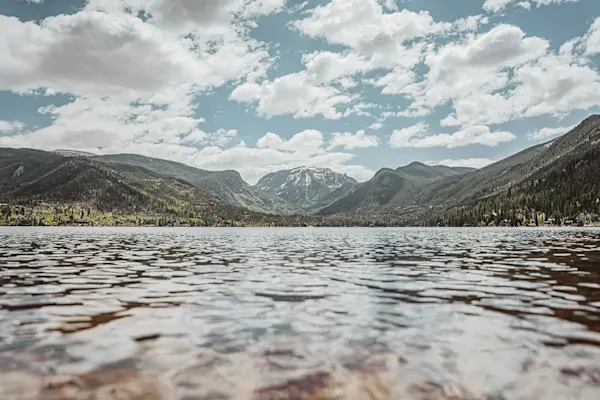
What Is Public Indecency Under Colorado's Legal Framework?
Colorado's public indecency laws might seem straightforward until you actually look at them. Like a lot of legal writing, what appears simple on the surface reveals layers of complexity that can make the difference between a minor citation and serious criminal charges. Understanding these nuances isn't just academic - it's practical knowledge that could save you from life-altering consequences.
The state has crafted a legal framework that tries to balance individual freedom with community standards, but the results can be confusing for ordinary people trying to understand what's actually prohibited. Colorado's approach reflects both progressive attitudes about personal expression and traditional concerns about public order, creating a system that's uniquely Colorado in its contradictions and complications.
Colorado Revised Statutes Section 18-7-301
Colorado's public indecency law, found in Section 18-7-301 of the Colorado Revised Statutes, defines the offense as any person who performs specific acts "in a public place or where the conduct may reasonably be expected to be viewed by members of the public." The law specifically covers three main categories of behavior:
Lewd exposure of intimate parts (not including genitals) done with intent to arouse or satisfy sexual desire
Lewd fondling or caressing of another person's body
Knowing exposure of genitals to another person under circumstances likely to cause alarm or affront
Most public indecency violations are classified as petty offenses, but repeat offenses involving genital exposure can escalate to class 1 misdemeanors. What makes Colorado's law particularly interesting is how it handles intent - the state has structured this as what courts call a "strict liability" crime for the location element. This means it doesn't matter whether you knew you were in a public place; what matters is whether "a reasonable person in the defendant's position should have known."
The law has undergone significant changes over the years. A major revision in 2010 (House Bill 10-1334) restructured both public indecency and indecent exposure statutes, partly in response to public frustration over cases like Boulder's "Naked Pumpkin Runners" who faced potential sex offender registration for what many viewed as harmless college pranks.
Colorado's Unique Legal Structure
Here's where things get complicated: Colorado doesn't just have one law about public nudity and sexual conduct. The state maintains separate statutes for public indecency and indecent exposure, and the differences between them can determine whether someone faces a minor citation or mandatory sex offender registration.
Under Colorado law, indecent exposure (CRS 18-7-302) involves knowingly exposing your genitals to alarm or offend others, while public indecency (CRS 18-7-301) involves broader conduct like public sexual acts, lewd behavior, or showing intimate parts for sexual gratification. The key distinction often comes down to intent and body parts involved. For indecent exposure charges, prosecutors must prove you exposed genitals with intent to arouse, while public indecency can be charged when intimate parts of the body (not necessarily genitals) are exposed with intent to arouse.
This creates several important practical differences:
Sex offender registration requirements: Indecent exposure typically requires sex offender registration, while public indecency charges generally don't
Penalty structures: Public indecency is generally a petty offense with lesser penalties, while indecent exposure is a class 1 misdemeanor that can escalate to felony charges
Long-term consequences: The registration requirement makes indecent exposure convictions far more serious, affecting employment, housing, and travel options
Municipal variations: Colorado's home rule cities like Denver, Boulder, and Colorado Springs can "pass laws and ordinances specific to their local circumstances" and have broad powers to address local matters
Colorado Springs, for example, has its own municipal ordinance 9.4.103 that prohibits public indecency acts "in a public place or a place within public view," which can create additional layers of legal complexity beyond state law. This means someone could potentially face both state charges and municipal violations for the same conduct, depending on where it occurs and how local authorities choose to proceed.
The Bottom Line: Colorado's legal framework for public indecency involves multiple overlapping laws with significantly different consequences, making it essential to understand not just state statutes but also local ordinances that can vary dramatically between jurisdictions.
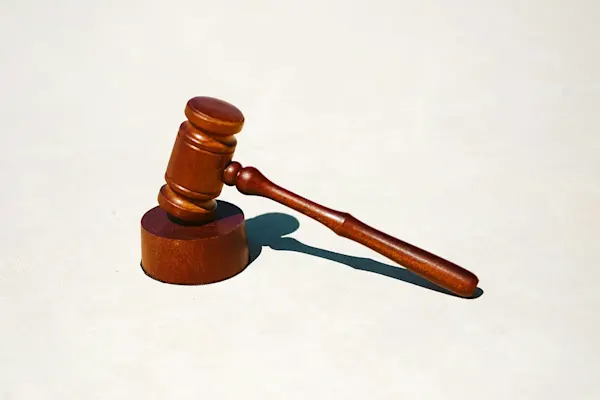
Public Indecency Scenarios Under Colorado Law
Real life has a way of taking simple legal concepts and twisting them into situations that would make law school professors scratch their heads. Colorado's public indecency laws might seem straightforward on paper, but when you start applying them to the diverse ways people actually live, work, and recreate in this state, things get interesting fast.
What makes Colorado unique isn't just our altitude - it's how our legal system has had to adapt to everything from urban art districts to remote wilderness areas, from hot springs culture to music festivals. Understanding how these laws work in practice means looking at the real scenarios where people encounter legal problems, because the difference between a minor citation and serious criminal charges often comes down to details most people never think about.
Sexual Activity in Public Places
Colorado courts have spent considerable time defining what constitutes a "public place," and their interpretation goes far beyond the obvious examples like city sidewalks. Under Colorado law, a public place includes any location where the conduct "may reasonably be expected to be viewed by members of the public" - a definition that can surprise people who thought they were in private spaces.
Public places include any location that a member of the public can access including schools, amusement parks, parks, playgrounds, and building common areas. But Colorado courts have expanded this definition to include areas that might feel private but aren't legally considered so:
Vehicles in parking lots or on public streets, even with tinted windows, since passersby or law enforcement could potentially observe activities
Hotel balconies and patios where other guests or neighboring buildings could see what's happening
Fenced yards if the activity is visible from adjacent properties, sidewalks, or public spaces
Hiking trails and remote areas in state or national parks, since these remain public lands regardless of how isolated they seem
Hot springs and swimming areas on public land, even if they feel secluded and have informal clothing-optional traditions
Colorado's approach to cases in parks, trails, and recreational areas reflects the state's outdoor culture while maintaining legal boundaries. The key factor isn't whether you think someone might see you - it's whether a reasonable person would expect the area to be viewable by members of the public. This has led to some surprising prosecutions where people assumed remote locations offered legal privacy that didn't actually exist.
Colorado's outdoor recreation culture creates unique legal challenges where activities that seem private can still result in public indecency charges if they occur in legally "public" spaces.
Exposure and Nudity in Colorado
Colorado's approach to nudity reveals the complicated relationship between state law, local ordinances, and cultural acceptance. The state doesn't explicitly prohibit simple nudity, but rather focuses on "indecent exposure" and "public indecency" with specific intent requirements that can make or break a legal case.
Public nudity is not illegal in and of itself under Colorado state law unless it qualifies as lewd or sexual conduct. However, local municipalities often take much stricter approaches. The state's framework creates several important distinctions:
Non-sexual nudity (like sunbathing or skinny dipping) may not violate state law, but can still be illegal under local municipal ordinances
Clothing-optional areas exist at certain private resorts and some hot springs, where nudity is legally permitted through property owner consent
Protest and artistic expression receive some protection, though participants can still face charges if the nudity is deemed to have sexual intent
Breastfeeding is specifically protected under Colorado law and cannot be prosecuted as public indecency
Accidental exposure generally doesn't meet the legal standard for public indecency, which requires knowing or intentional conduct
Colorado's outdoor recreation culture has influenced enforcement patterns, with rural mountain communities often demonstrate greater tolerance for unconventional behavior, including occasional nude recreation in appropriate contexts, while urban areas like Denver, Boulder, and Colorado Springs maintain active enforcement of nudity laws. This creates a patchwork system where identical behavior might result in different legal consequences depending on location.
Colorado's cultural acceptance of outdoor recreation and artistic expression creates gray areas where nudity laws are enforced inconsistently across different regions and contexts.
Lewd Conduct Under Colorado Law
The word "lewd" appears throughout Colorado's public indecency statutes, but the law provides surprisingly little guidance about what this actually means in practice. Colorado courts have generally interpreted "lewd" to refer to lascivious conduct of an overtly sexualized nature, but this circular definition leaves substantial room for interpretation and prosecutorial discretion.
Lewd conduct refers to indecent, obscene, or offensive sexual behavior. It generally refers to sexual acts that arouse sexual interest or offend another person. In practice, Colorado courts determine lewdness by examining several factors:
Intent to arouse or satisfy sexual desire - This separates casual physical contact from potentially criminal behavior
Context and circumstances - The same physical contact might be lewd in a public park but not at a medical facility
Observer reactions - Whether the conduct was "likely to cause affront or alarm," though prosecutors don't need to prove anyone was actually offended
Community standards - What might be acceptable in some Colorado communities could be prosecuted as lewd in others
Repeat behavior patterns - Courts may consider whether someone has engaged in similar conduct before
Colorado courts handle witness testimony in lewd conduct cases with particular attention to reliability and consistency. Classic attacks on all forms of eyewitness testimony include – the time of day or night of the observations, the distance to the scene of the alleged conduct, eyesight, distractions, levels of intoxication, distractions, time of observations and similar lines of inquiry. Defense attorneys frequently challenge these cases by questioning witness credibility, especially regarding their ability to accurately observe and interpret behavior from a distance.
Digital considerations add complexity to Colorado's lewd conduct laws. While filming or photographing someone engaged in public indecency isn't specifically addressed in the public indecency statutes, taking pictures of a person's intimate body parts without consent is considered criminal invasion of privacy and can be prosecuted as a class 2 misdemeanor. This creates potential parallel prosecutions where someone could face both public indecency charges for their behavior and invasion of privacy charges for documenting it.
Colorado's definition of "lewd" conduct relies heavily on subjective interpretations of intent and community standards, making these cases particularly dependent on witness testimony and prosecutorial discretion.
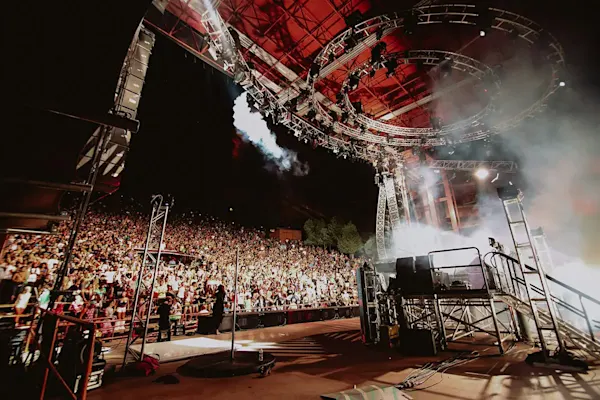
Legal Defenses Available in Colorado
When you're facing public indecency charges in Colorado, the legal landscape suddenly becomes a lot more interesting - and a lot more complex. The same constitutional principles that protect political protesters and religious practitioners can potentially shield someone caught in compromising circumstances, but only if you know how to navigate the intricate web of federal and state protections.
Colorado's legal system offers multiple layers of defense strategies, from broad constitutional protections to highly technical procedural challenges. The key is understanding that every case has unique elements that might provide pathways to dismissal or reduction of charges. What works in one situation might fail completely in another, which is why these cases require careful analysis of both the specific facts and the broader legal framework.
Colorado Constitutional Protections
Colorado's state constitution provides several protections that can exceed what's available under federal law. The Colorado Bill of Rights contains 30 sections compared to the federal Bill of Rights' 10 amendments, creating additional opportunities for defense strategies that might not be available in other states.
The state constitution's Article II, Section 10 declares that "no law shall be passed impairing the freedom of speech; every person shall be free to speak, write or publish whatever he will on any subject." This language is actually broader than the First Amendment's federal protections and has been interpreted by Colorado courts to provide stronger free expression rights in certain circumstances.
Colorado's constitutional protections include:
Expressive conduct protections that may shield some forms of public nudity when connected to political protests, artistic expression, or cultural demonstrations
Religious freedom guarantees under Article II, Section 4, which protects "the free exercise and enjoyment of religious profession and worship, without discrimination"
Individual liberty provisions that emphasize personal autonomy and protection from government overreach
Due process protections that require the state to prove every element of public indecency beyond a reasonable doubt
Equal protection guarantees that prevent selective enforcement based on viewpoint, religion, or other protected characteristics
Religious freedom considerations in Colorado courts have evolved significantly, particularly following recent federal litigation where the Department of Justice defended Colorado churches' First Amendment rights. Courts must carefully balance religious expression against public order, and some conduct that might otherwise constitute public indecency could receive protection if it's genuinely connected to sincere religious practice.
Colorado's constitutional framework often provides broader protections than federal law, creating unique defense opportunities that experienced attorneys can leverage in public indecency cases.
Common Defense Strategies in Colorado Cases
Colorado's court system presents several procedural and substantive defense opportunities that skilled attorneys regularly employ. The state's evidence rules and criminal procedure requirements create multiple pressure points where cases can be challenged or dismissed entirely.
Challenging venue and jurisdiction represents one of the most technical but potentially effective defense strategies. Under Colorado's Rules of Criminal Procedure, cases must be filed in the proper judicial district where the alleged conduct occurred. Colorado's complex jurisdictional landscape - with 22 judicial districts, numerous home rule municipalities, and overlapping federal lands - creates opportunities for venue challenges that can result in case dismissals or transfers to more favorable courts.
Colorado-specific procedural defenses that defense attorneys commonly employ include:
Discovery violations where prosecutors fail to provide all required evidence under Colorado's Rules of Criminal Procedure
Statute of limitations challenges based on Colorado's specific time limits for prosecuting different types of public indecency charges
Miranda violations and other constitutional protections during arrest and questioning
Search and seizure challenges under both federal and Colorado constitutional standards
Entrapment defenses when law enforcement officers induce conduct that wouldn't have otherwise occurred
Mental health considerations including competency evaluations and diminished capacity defenses
Colorado's evidence rules create additional defense opportunities through strict requirements about how testimony and physical evidence can be presented. The Colorado Rules of Evidence require prosecutors to establish proper foundation for all evidence, including witness testimony about what they observed and under what circumstances. Defense attorneys frequently challenge the reliability of eyewitness testimony by examining factors like lighting conditions, distance, intoxication levels, and the observer's attention and memory.
Colorado courts also recognize several affirmative defenses that can completely absolve defendants even when the technical elements of public indecency are proven. These include necessity defenses (where the conduct was required to prevent greater harm), duress (where someone was forced to engage in the conduct), and mistake of fact (where someone reasonably believed they were in a private location).
Colorado's complex jurisdictional structure and detailed procedural requirements create numerous opportunities for skilled defense attorneys to challenge public indecency cases on technical grounds that can result in dismissals or significant charge reductions.
Ready to Protect Your Rights? Contact The Reputation Law Group
If you're facing public indecency charges in Colorado, you need experienced legal representation that understands both the technical complexities of these cases and the broader constitutional protections available under Colorado law. The stakes are too high to navigate this alone - the difference between a minor citation and serious criminal consequences often comes down to the quality of your legal defense.
The Reputation Law Group has extensive experience defending clients against public indecency charges throughout Colorado. We understand how to leverage Colorado's unique constitutional protections, identify procedural weaknesses in the prosecution's case, and develop comprehensive defense strategies tailored to your specific circumstances.
Don't let a moment of poor judgment define your future. Contact The Reputation Law Group today for a confidential consultation to discuss your case and explore your defense options. Time is critical in these cases - the sooner we can begin building your defense, the better your chances of achieving a favorable outcome.

Penalties Under Colorado Law
The numbers behind Colorado's public indecency penalties tell a story that goes far beyond simple jail time and fines. What looks like straightforward punishment on paper becomes a complex web of consequences that can reshape someone's life for years or even decades. Understanding these penalties means grasping not just what the statutes say, but how they actually play out in the real world of employment, licensing, and social relationships.
Colorado's penalty structure reflects the state's attempt to balance punishment with rehabilitation, but the practical impact often extends well beyond what legislators originally envisioned. The consequences cascade through multiple systems - criminal, civil, professional, and social - creating a reality where a single conviction can trigger effects that last far longer than any jail sentence.
Colorado Criminal Classifications
Colorado's restructured criminal classifications, which took effect in March 2022, significantly changed how public indecency offenses are penalized. The state simplified its misdemeanor system while maintaining clear distinctions between different levels of severity, but these changes also created some counterintuitive results where certain offenses now carry lighter penalties than before.
Public indecency under CRS 18-7-301 is classified as a petty offense, carrying up to 10 days in jail and/or up to $300 in fines. This represents a substantial reduction from pre-2022 penalties, when the same conduct could result in up to 6 months in jail and $500 in fines. However, the picture becomes more complicated when repeat offenses are involved.
Colorado handles repeat offenders through escalating penalty structures:
First-time public indecency violations remain petty offenses with minimal jail exposure and relatively low fines
Repeat genital exposure offenses can escalate to class 1 misdemeanors, carrying up to 364 days in jail and $1,000 in fines
Indecent exposure charges (CRS 18-7-302) start as class 1 misdemeanors with up to 364 days in jail and $1,000 fines
Multiple indecent exposure convictions can result in class 6 felony charges, potentially leading to 12-18 months in prison and fines up to $100,000
Sex offender registration requirements can apply even to misdemeanor convictions, creating lifetime reporting obligations
The distinction between public indecency and indecent exposure becomes critical here, as indecent exposure convictions typically require sex offender registration while public indecency convictions generally do not. This registration requirement transforms what might seem like a minor offense into something with profound long-term consequences, affecting where someone can live, work, and travel.
Colorado's criminal penalty structure may appear lenient on paper, but escalating classifications and sex offender registration requirements can transform minor charges into life-altering consequences.
Colorado-Specific Consequences
Colorado's professional licensing system operates under laws that were substantially reformed in recent years to balance public safety with opportunities for rehabilitation. The Division of Professions and Occupations now takes a more nuanced approach to criminal convictions, but public indecency charges can still create significant barriers in certain professions.
Professional licensing impacts vary dramatically depending on the specific field and the nature of the conviction. Colorado's approach considers multiple factors including the relationship between the offense and the profession, evidence of rehabilitation, and public safety concerns.
Professional license consequences in Colorado include:
Healthcare professions may face license suspension or revocation, particularly if the conviction involved sexual conduct or raised questions about professional judgment
Education licenses through the Colorado Department of Education require disclosure of all misdemeanor and felony convictions, with disciplinary decisions made on a case-by-case basis
Legal profession licensing faces scrutiny from the Colorado Supreme Court's Office of Attorney Regulation, which examines character and fitness implications
Financial services positions may be affected due to federal regulations and professional conduct standards
Conditional licensing programs may allow individuals to work under supervision while demonstrating rehabilitation
Colorado's background check laws create additional employment challenges beyond professional licensing. The state's "Clean Slate" legislation provides for automatic sealing of certain records, but this process can take years and doesn't apply to all convictions.
Background check implications under Colorado law include:
Seven-year lookback periods for most background checks, though some employers can access older records
Ban-the-box protections that prevent initial application screening but allow background checks after conditional job offers
Automatic record sealing after specified periods (7 years for misdemeanors, 10 years for felonies) but only for qualifying offenses
Federal employment exclusions where Colorado's protections don't apply due to federal requirements
Housing discrimination potential, as landlords can consider criminal history in rental decisions
Civil liability under Colorado tort law represents another layer of potential consequences that many people don't anticipate. Colorado recognizes several privacy-related torts that can result in monetary damages awarded to victims of public indecency incidents.
Colorado's professional licensing reforms provide more opportunities for rehabilitation than many states, but public indecency convictions can still create significant barriers in healthcare, education, and other licensed professions.
Protecting Your Future
The complexity of Colorado's penalty structure means that what seems like a minor charge can have far-reaching consequences across multiple areas of your life. From immediate criminal penalties to long-term professional impacts, these cases require strategic legal representation that understands both the criminal and collateral consequences you're facing.
Don't let a public indecency charge derail your future. The Reputation Law Group has extensive experience helping clients minimize both the immediate penalties and long-term consequences of these charges. We understand Colorado's evolving legal landscape and can help you develop a comprehensive defense strategy that protects not just your freedom, but your career and reputation as well. Contact us today for a confidential consultation to discuss your specific situation and explore your options.
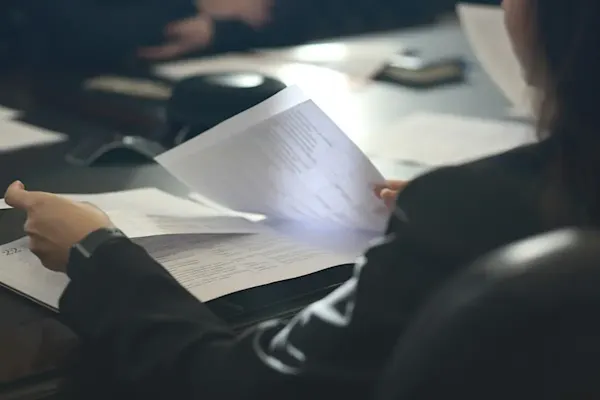
Colorado's Evolving Legal Landscape
Colorado's legal system doesn't exist in a vacuum - it's a living, breathing reflection of the state's changing cultural identity and progressive values. What makes Colorado unique isn't just its mountains and outdoor lifestyle, but how those elements have shaped a legal framework that's constantly adapting to new social realities while trying to balance individual freedom with community standards.
Understanding how Colorado's public indecency laws work today means understanding the broader currents of change flowing through the state's legal system. From the Denver metro area's tech-driven progressivism to rural counties' more traditional approaches, Colorado represents a fascinating laboratory for how American law adapts to cultural shifts. The state's approach to these issues reflects deeper questions about personal liberty, community values, and the role of government in regulating human behavior.
Recent Changes in Colorado Law
Colorado's progressive stance has fundamentally altered how public indecency cases are approached throughout the state's legal system. The most significant changes began with House Bill 10-1334 in 2010, which restructured the relationship between public indecency and indecent exposure laws in response to public outcry over cases like the "Naked Pumpkin Runners" in Boulder who faced potential sex offender registration for what many viewed as harmless college pranks.
This legislative response reflected Colorado's broader cultural shift toward viewing nudity and sexual expression through a more nuanced lens. The American Civil Liberties Union's advocacy played a crucial role, with Boulder County chapter chair Judd Golden stating their concern about "the way in which the Colorado sex-offender registry is set up, resulting in sex-offender status for these kinds of activities."
Colorado's progressive stance affects enforcement trends in several key ways:
Reduced penalties for first-time public indecency offenses, with the 2022 misdemeanor reform (SB 21-271) further reducing potential jail time from 6 months to 10 days
Elimination of sex offender registration requirements for most first-time public indecency convictions
Cultural tolerance for artistic expression, protest activities, and Colorado's outdoor recreation culture that includes clothing-optional hot springs and naturist communities
Legislative responsiveness to public concerns about disproportionate punishments, as seen in the continuing evolution of these laws
Prosecutorial discretion increasingly influenced by community attitudes that distinguish between harmful sexual conduct and harmless expression
Recent legislative changes also include enhanced penalties for indecent exposure involving minors (HB 23-1135), making such conduct a class 6 felony when committed in view of children under 15. This demonstrates Colorado's approach of reducing penalties for victimless conduct while increasing protection for vulnerable populations.
The state's cultural shifts toward greater acceptance of diverse lifestyles and sexual expression have influenced legal interpretation in ways that extend beyond specific statutory changes. Colorado courts have become more willing to consider context, intent, and community standards when evaluating these cases, reflecting broader social evolution.
Colorado Community Standards
The concept of "community standards" takes on particular complexity in a state as geographically and culturally diverse as Colorado. What's acceptable in Boulder's progressive university environment differs dramatically from expectations in rural agricultural communities, creating a legal landscape where identical behavior might be viewed completely differently depending on location.
Urban areas like Denver, Boulder, and Colorado Springs maintain active enforcement of nudity laws while simultaneously demonstrating greater tolerance for unconventional behavior, including occasional nude recreation in appropriate contexts. The distinction between urban settings and rural areas plays a pivotal role in how such cases are evaluated, with urban settings often resulting in more severe charges due to higher population density and increased public visibility.
Colorado's diverse regional approaches include:
Boulder County's tolerance for protest nudity, clothing-optional recreation, and artistic expression, influenced by the university culture and progressive political environment
Denver metro area's urban standards that emphasize public order while accommodating diverse lifestyles and cultural events
Rural mountain communities that often demonstrate greater tolerance for unconventional behavior due to lower population density and different social norms
Resort communities like Aspen and Vail that balance tourist expectations with local outdoor recreation culture
Eastern plains agricultural areas that maintain more traditional community standards and enforcement approaches
The role of local prosecutors across Colorado's counties creates additional variation in how these laws are enforced. District attorneys in different jurisdictions exercise broad discretion in charging decisions, with some focusing resources on cases involving actual harm while others maintain stricter enforcement of technical violations. This prosecutorial variation reflects local political pressures, community expectations, and resource limitations.
Colorado's 22 judicial districts serve 64 counties, each with local prosecutors who must balance state law with community values. Prosecutors in jurisdictions with higher caseloads may be more likely to offer favorable plea bargains for minor public indecency cases, while smaller communities might pursue charges more aggressively due to greater community visibility and pressure.
What to Do If Charged in Colorado
If you're facing public indecency charges in Colorado, understanding the state's unique legal landscape becomes immediately practical rather than academically interesting. Colorado's court system, plea bargaining practices, and defense strategies all reflect the state's particular approach to balancing individual rights with community standards.
Finding qualified Colorado criminal defense attorneys requires understanding that these cases often involve both criminal law expertise and familiarity with local community standards and prosecutorial practices. Colorado's State Public Defender system provides quality representation through 21 regional trial offices serving all 22 judicial districts, but many defendants benefit from private attorneys who specialize in these specific types of cases.
Key considerations when selecting Colorado legal representation include:
Experience with public indecency cases specifically, as these charges involve unique legal and social complexities not found in other criminal areas
Familiarity with local prosecutors and courts, since enforcement practices vary significantly across Colorado's diverse jurisdictions
Understanding of Colorado's evolving legal landscape, including recent statutory changes and cultural shifts affecting how these cases are handled
Knowledge of plea bargaining practices in your specific jurisdiction, as outcomes can vary dramatically between different Colorado counties
Awareness of collateral consequences including professional licensing impacts, employment background checks, and potential civil liability
Colorado's court system operates through district courts that handle criminal cases, with procedures governed by the Colorado Rules of Criminal Procedure. Understanding these procedures becomes crucial when facing charges, as Colorado's system includes specific protections and opportunities that may not exist in other states.
Colorado plea bargaining in public indecency cases often involves several unique considerations:
Charge reduction opportunities from indecent exposure to public indecency, avoiding sex offender registration requirements
Deferred judgment options that can result in case dismissal after completing probation terms
Diversion programs that focus on education and community service rather than punishment
Consideration of intent and context, with Colorado prosecutors more willing than many states to consider circumstances surrounding the alleged conduct
Community standards evaluation, where local norms and values play a larger role in plea negotiations than in more prescriptive legal systems
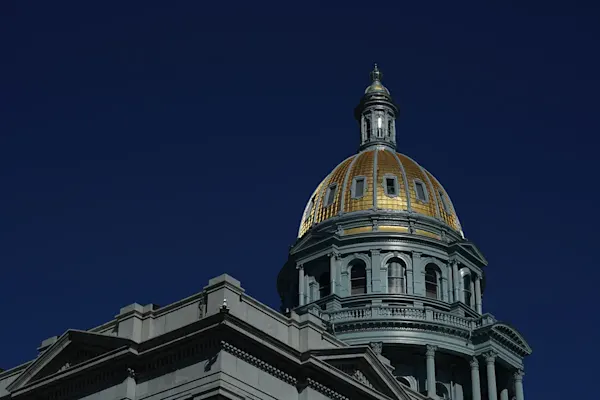
Conclusion
Colorado's public indecency laws represent something more complex and nuanced than most people realize when they first encounter them. What appears to be a straightforward set of rules about appropriate public behavior reveals itself to be a sophisticated legal framework that reflects the state's ongoing struggle to balance individual freedom with community standards, personal expression with public order, and progressive values with practical enforcement needs.
Understanding these laws means understanding Colorado itself - a state where Boulder's clothing-optional hot springs coexist with conservative rural communities, where Denver's urban sophistication meets mountain town informality, and where legislative reform responds to real people facing real consequences for behavior that might be perfectly acceptable in one context but criminal in another. This isn't just about knowing what's legal and what's not; it's about understanding how law, culture, and geography intersect in ways that can profoundly impact your life.
Context matters more in Colorado than in most states - the same conduct might be treated as harmless expression in Boulder, a minor violation in Denver, or a serious offense in rural counties
Recent legal reforms have reduced penalties for most public indecency offenses, but the consequences can still be severe, particularly for repeat offenses or cases involving minors
The distinction between public indecency and indecent exposure can be the difference between a minor citation and sex offender registration requirements
Colorado's evolving cultural landscape continues to influence how these laws are interpreted and enforced, with growing emphasis on intent and community standards
Professional and employment consequences can extend far beyond criminal penalties, affecting licensing, background checks, and civil liability
Legal representation makes a significant difference in outcomes, particularly attorneys familiar with Colorado's specific legal landscape and local prosecutorial practices
Understanding Local Colorado Ordinances
The complexity of Colorado's home rule system means that understanding state law is only the beginning. Cities like Denver, Boulder, Colorado Springs, and dozens of smaller municipalities have their own ordinances that can create additional layers of legal exposure or, in some cases, provide different enforcement approaches than state law. What's legal under state law might violate local ordinances, and what seems like a minor state offense might carry additional municipal penalties.
This patchwork of overlapping jurisdictions reflects Colorado's commitment to local self-governance, but it also means that identical behavior can result in dramatically different legal consequences depending on exactly where it occurs. A clothing-optional gathering that's tolerated on private property in one county might violate strict municipal ordinances just miles away. Understanding these local variations isn't just helpful - it's essential for anyone who wants to avoid unexpected legal problems.
Navigating Colorado's Legal Environment
Colorado's legal environment rewards those who take the time to understand its complexities and approach it with both respect for the law and awareness of the broader cultural context. This is a state that values individual freedom but also takes community standards seriously, that embraces progressive reform while maintaining practical enforcement mechanisms, and that recognizes the difference between harmful conduct and harmless expression.
The most successful outcomes in public indecency cases typically involve early intervention by qualified legal counsel, a realistic assessment of the specific facts and circumstances, and a strategic approach that considers both immediate consequences and long-term implications. Colorado's legal system offers multiple pathways to favorable resolutions - from charge reductions to deferred judgments to diversion programs - but accessing these opportunities requires understanding how the system actually works rather than how it appears to work on paper.
Protect Your Rights and Your Future with The Reputation Law Group
If you're facing public indecency charges in Colorado, you need legal representation that understands both the letter of the law and the spirit of how it's actually applied throughout the state's diverse communities. The Reputation Law Group combines deep knowledge of Colorado's evolving legal landscape with practical experience in achieving favorable outcomes for clients facing these challenging and often misunderstood charges.
We know that every case is different, every jurisdiction has its own approach, and every client deserves a defense strategy tailored to their specific circumstances and goals. Our team has successfully handled public indecency cases across Colorado's varied legal landscape, from urban district courts to rural county jurisdictions, and we understand how to navigate the complex interplay of state law, local ordinances, and community standards that can make or break these cases.
Don't let a public indecency charge derail your future. Contact The Reputation Law Group today for a confidential consultation to discuss your case and explore your options. Time is critical in these matters - the sooner we can begin building your defense, the more options we'll have to protect your rights, your reputation, and your future. Call us now and let us put our Colorado legal expertise to work for you.




